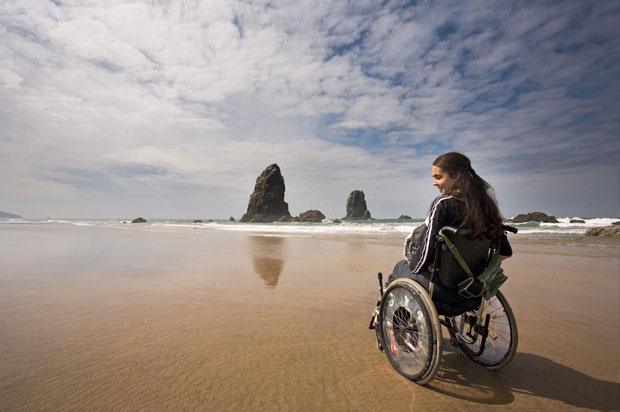Travelling with a disability
For some people, getting about requires more planning than most. If this is the case for you, use the following advice to help you undertake your next trip both safely and easily.

Go out there and see the world
Planning your trip ahead
- As soon as you know you’ll be making a journey, book an appointment to visit your doctor (GP) or specialist nurse to discuss the details of your trip;
- If you need medication, be sure to get repeat prescriptions (enough to last the trip as well as cover some extra time in case your return is delayed);
- Should you need vaccinations, your doctor can check no conflict will occur with any medication you’re taking;
- If you’re travelling through customs, and need to carry equipment or needles, ask your GP to write an explanatory letter. It could save time if you’re stopped and questions are asked.
- There should be no medical reason why you can’t take malaria tablets or have vaccinations. Even so, check with your GP first;
- Consider taking comprehensive insurance cover with a company that is aware of your condition.
- If you’re travelling with a friend or relative make them aware of your needs and outline any ways they can help before you travel;
- If you use a wheelchair it’s well worth packing a repair kit.
Flying with a disability
- Before booking a flight, check whether you will have to pay a surcharge for any specialist facilities you may need. People with disabilities who occupy one passenger seat should not need to pay extra. The Civil Aviation Authority suggests you strongly resist any attempt by the airline to charge you for special ground services. They say that if you are charged, keep the receipt and try to claim the money back later;
- Inform the airline or travel operators of your needs at the airport, on the aircraft and upon arrival when booking with them. Most can provide special chairs, seats or meals to make your trip as safe and comfortable as possible. Some may insist that you fly with a companion/ support worker;
- Check the day before departure that the airline has noted down your requirements and made any necessary preparations;
- Make sure you can manage the toilet facilities in the airport and on the aircraft;
- If you have a hearing disability, inform the flight attendant so that alternative safety instructions can be given to you;
- If you are flying, try to take the most direct route so that you don’t have the added hassle of changing flights in busy foreign airports. However, if you must change flights and need help doing so, speak to an airline representative. They should be able to arrange for someone to meet and assist you;
- Blind passengers are entitled to special concessionary rates if they are travelling by air in the UK for business, medical, training, education or rehabilitation purposes. Ask your airline for more information;
- Usually the blind person and an escort can travel for the price of one adult fare. Guide dogs are usually accepted free of charge and will be allowed on board;
- Guide dogs should not be taken on international flights because they must be quarantined for six months on returning to the UK.
- New EU regulations introduced in 2008 make it compulsory for large airports to assist disabled passengers free of charge. Passengers will receive assistance getting from arrival to boarding gates and will be met at the destination. Airlines will assist passengers on the flight as well as providing information, such as safety instructions, in alternative formats (e.g. Braille). The seating needs of disabled passengers must be met at no extra costs.
Train travel with a disability
- When travelling by train within the UK, all major stations run by Network Rail aim to provide access for wheelchair users and people with impaired mobility according to the Disability Discrimination Act;
- By contacting the station in advance, you can make arrangements for a member of staff to accompany you to the train and make sure you are safely on board. You can also arrange to be met at your destination, or at any changes where you need to switch to a connecting train;
- If you have any queries about the journey itself, contact the train operating company responsible for the line.
Buses and coaches
- If you don’t have access to a car, public transport within the UK aims to cater for disabled people and their needs. Contact your local bus and coach services for details;
- Alternatively, consider private taxi hire or door-to-door community transport services. You’ll find many offer vehicles that have been tailored to meet your needs. See your local phone book for more information.
Photo of girl on beach by Shutterstock
Next Steps
- Chat about this subject on our Discussion Boards.
By
Updated on 29-Sep-2015
No featured article










